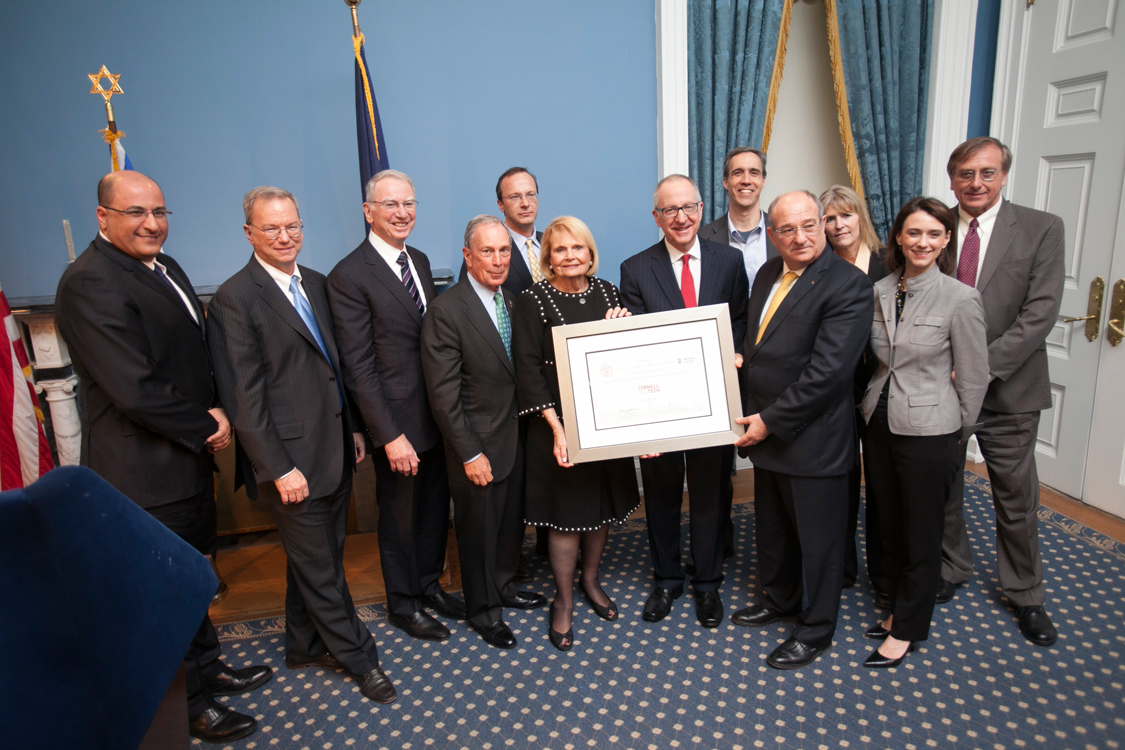Imprint, a Startup Born From Cornell Tech’s Runway Program, Raises $15 Million
Categories

By Grace Stanley
Imprint, an organization founded at Cornell Tech that is dedicated to decoding the body’s immune memory and uncovering the causes of chronic diseases, announced that it has raised over $15 million in funding.
Imprint’s journey began in 2019 when its founder, Beck Brachman, was accepted into Cornell Tech’s Runway Postdoc Program, a startup incubator within the Joan and Irwin Jacobs Technion-Cornell Institute. The Runway program helps postdocs, those who recently received their doctoral degrees, transition from an academic mindset to an entrepreneurial outlook. Participants receive substantial support, including a salary, research budget, housing allowance, mentorship from academic and business experts, and access to selected university resources.
The Runway Program has been instrumental in launching over 120 startups. These startups have collectively raised over $375 million in private funding and created more than 500 jobs in New York City. Notable startups include Nanit, OnsiteIQ, and Biotia.
“Imprint exemplifies the kind of bold, translational science we champion at Cornell Tech’s Runway Program — science that moves beyond the lab to deliver real impact,” said Fernando Gómez-Baquero, director of the Runway Startup Postdoc and Spinout Program at Cornell Tech’s Jacobs Institute, and member of Imprint’s Board of Directors.
Imprint, a nonprofit Focused Research Organization (FRO) supported by Convergent Research, aims to pioneer new experimental and machine learning technologies to uncover the hidden causes of chronic diseases, including autoimmune diseases, long COVID, and neuropsychiatric disorders. The $15 million in funding will be used to establish Imprint’s high-throughput data generation pipeline, build its first computational tool, and pilot disease applications. The investment comes from notable backers, including philanthropists Eric and Wendy Schmidt, Peter Reinhart, and the New York City Economic Development Corporation (NYCEDC).
“We may not know what’s causing chronic disease – but the immune system probably does,” said Brachman, CEO and co-founder of Imprint, last month from the TED stage. “In addition to being an army, the immune system is also an archive. We founded Imprint on the thesis that the immune system’s historical archive can be accessed and translated to identify unknown causes of chronic disease, enabling the development of diagnostics, treatments, and even cures.”
Imprint’s “forensic immunology” approach aims to unlock the secrets held within memory immune cells, which contain an archive of all the immune exposures a person has had throughout their life. This history of diseases and their hidden triggers exists in the human body, but is challenging to locate and decipher. Imprint is working to develop experimental and computational immunology tools to uncover this information.
“By decoding the immune system’s memory, Imprint is unlocking a frontier of discovery that could change how we diagnose, treat, and even prevent chronic disease,” said Gómez-Baquero. “We’re proud to have helped Dr. Brachman catalyze this vision and to support the computational and scientific infrastructure that will drive a deeper understanding of autoimmune and neuropsychiatric disorders.”
As a part of this new funding, the NYCEDC has awarded a grant to Imprint through the LifeSci NYC Expansion Fund. This fund aims to support rapidly growing life sciences companies that want to expand in New York City. The LifeSci NYC Expansion Fund is part of the broader LifeSci NYC initiative, a $1 billion project managed by NYCEDC to establish New York City as a global leader in life sciences and create 40,000 jobs over the next 15 years.
“New York City is cementing itself as a global leader in life sciences and paving the way for cutting-edge innovation — like the work happening at Imprint — to emerge right here in the heart of the city,” said Cecilia Kushner, NYCEDC’s chief strategy officer. “We are proud to support trailblazing companies like Imprint whose groundbreaking work will help accelerate scientific discovery and life science jobs in NYC, while uncovering the cause of chronic diseases and enabling people all around the globe to live longer.”
Grace Stanley is the staff writer-editor at Cornell Tech.
Media Highlights
Tech Policy Press
Content Moderation, Encryption, and the LawRELATED STORIES

Runway Q&A: Spacemate




